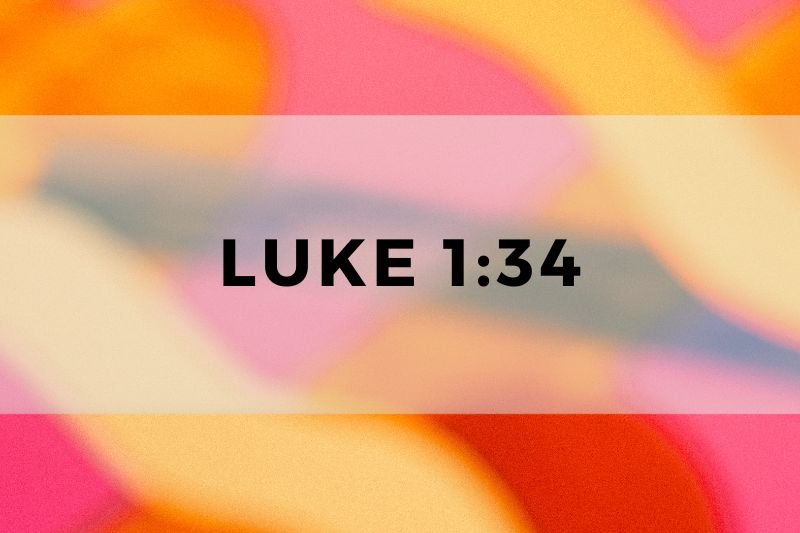
Luke 1:34
34 Then said Mary unto the angel, How shall this be, seeing I know not a man?
The Significance of Luke 1:34
Luke 1:34 is a pivotal verse in the Gospel of Luke. It captures a moment of profound significance. Mary, a young virgin, is visited by the angel Gabriel. He brings astonishing news: she will conceive and bear a son, Jesus. This verse records Mary’s immediate reaction.
Mary’s question, “How shall this be, seeing I know not a man?” is both practical and profound. She is not doubting the angel’s message. Instead, she seeks understanding. Her question highlights her purity and innocence. She has not been with a man, so how can she conceive a child?
This verse underscores the miraculous nature of Jesus’ birth. It sets the stage for the doctrine of the Virgin Birth. This doctrine is central to Christian belief. It asserts that Jesus was conceived by the Holy Spirit, not by human means. This makes Jesus’ birth unique and divine.
Mary’s response also reveals her character. She is thoughtful and reflective. She does not react with disbelief or fear. Instead, she seeks clarity. This shows her faith and willingness to understand God’s plan. Her question is a model of how to seek understanding in faith.
The angel’s response to Mary, found in the following verses, provides the answer. Gabriel explains that the Holy Spirit will come upon her. The power of the Most High will overshadow her. This divine intervention makes the impossible possible. It confirms that with God, all things are possible.
Luke 1:34 also connects to Old Testament prophecies. Isaiah 7:14 foretells a virgin giving birth to a son called Immanuel. Mary’s question and the angel’s answer fulfill this prophecy. It ties the Old and New Testaments together. It shows the continuity of God’s plan through history.
This verse also has theological implications. It emphasizes the role of the Holy Spirit in the Incarnation. The Holy Spirit’s involvement in Jesus’ conception highlights the divine nature of Jesus. He is both fully God and fully man. This dual nature is a cornerstone of Christian theology.
Moreover, Luke 1:34 invites readers to reflect on their own faith. Mary’s willingness to accept God’s plan, despite her initial confusion, is inspiring. It encourages believers to trust in God’s promises, even when they seem impossible. It teaches that faith often involves seeking understanding, not blind acceptance.
In summary, Luke 1:34 is a verse rich in meaning. It highlights the miraculous nature of Jesus’ birth. It reveals Mary’s faith and character. It connects to Old Testament prophecy. It underscores the role of the Holy Spirit. It invites believers to trust in God’s plan. This verse is a cornerstone of the Gospel narrative. It sets the stage for the birth of Jesus, the Savior of the world.
